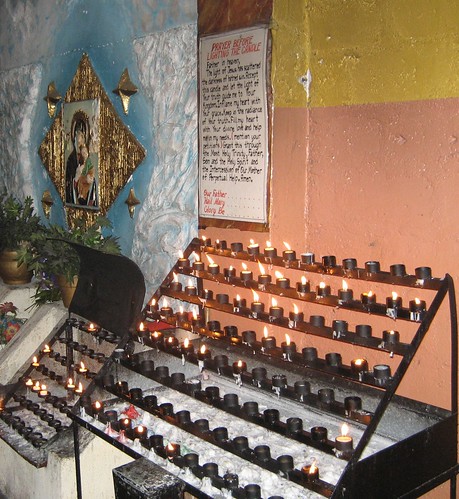Sunday, August 06, 2006
TWO NAMES AFTER THE FALL

One is Dr. Robert Oppenheimer; the other is Dr. Michihiko Hachiya. The fall took place 61 years ago to this day.
As for Dr. Oppenheimer, his early education was at the Ethical Culture Society School in New York. Besides the usual math and science classes, he studied Greek, Latin, French, and German with much enthusiasm. He was a natural with languages that he once learned Dutch in six weeks in order to give a technical talk in the Netherlands. The classics and eastern philosophy also held his interest throughout his life.
He obtained his PhD at the age of 22 in Germany’s University of Göttingen after graduating summa cum laude from Harvard in 1925. He returned to the United States in 1929 and taught at Berkeley and Cal Tech. He was an extraordinary teacher and an excellent theoretician. His analyses predicted many later discoveries, such as the neutron, positron, meson, and neutron stars.
His passion for his studies and the theoretical world of physics would subsequently lead him to a job in 1941 as Director of The Manhattan Project. In his research station at Los Alamos, New Mexico, he brought the best minds in physics and at one point he had about three thousand people reporting to him. Their job was to create the atomic bomb.
On July 16, 1945, Dr. Oppenheimer and his team witnessed the first explosion of an atomic bomb in the New Mexico desert.
On August 6, 1945, an atomic bomb was dropped on Hiroshima. Dr. Michihiko Hachiya worked as Director of the Hiroshima Communications Hospital and lived near the hospital approximately a mile from the explosion's epicenter. He lived through that day and kept a diary of his experience, which was published in English in 1955.
On that fateful day, Dr. Hachiya wrote on his diary:
Clad in drawers and undershirt, I was sprawled on the living room floor exhausted because I had just spent a sleepless night on duty as an air warden in my hospital.
Suddenly, a strong flash of light startled me - and then another. So well does one recall little things that I remember vividly how a stone lantern in the garden became brilliantly lit and I debated whether this light was caused by a magnesium flare or sparks from a passing trolley.
Garden shadows disappeared. The view where a moment before had been so bright and sunny was now dark and hazy. Through swirling dust I could barely discern a wooden column that had supported one comer of my house. It was leaning crazily and the roof sagged dangerously.
Moving instinctively, I tried to escape, but rubble and fallen timbers barred the way. By picking my way cautiously I managed to reach the roka [an outside hallway] and stepped down into my garden. A profound weakness overcame me, so I stopped to regain my strength. To my surprise I discovered that I was completely naked How odd! Where were my drawers and undershirt?
What had happened?
All over the right side of my body I was cut and bleeding. A large splinter was protruding from a mangled wound in my thigh, and something warm trickled into my mouth. My check was torn, I discovered as I felt it gingerly, with the lower lip lay wide open. Embedded in my neck was a sizable fragment of glass which I matter-of-factly dislodged, and with the detachment of one stunned and shocked I studied it and my blood-stained hand.
Where was my wife?
(Continue reading “Surviving the Atomic Attack on Hiroshima, 1945”)
Discovery Channel will air a two-part series, “Remembering Hiroshima,” beginning tonight at 9 p.m. here in the Philippines. Please check your local listing if living abroad.
Today, I should stop by Espiritu Santo Church to light a candle and wish that we never experience yet another gross annihilation of humanity and other forms of terrestrial life.
Labels: personalities, wartime history
posted by Señor Enrique at 6:37 AM
![]()
![]()

2 Comments:
- said...
Great post, and interesting link.
- Señor Enrique said...
Thanks, Aurea!
With your great interest in science, somehow I knew you'd appreciate this post :)




